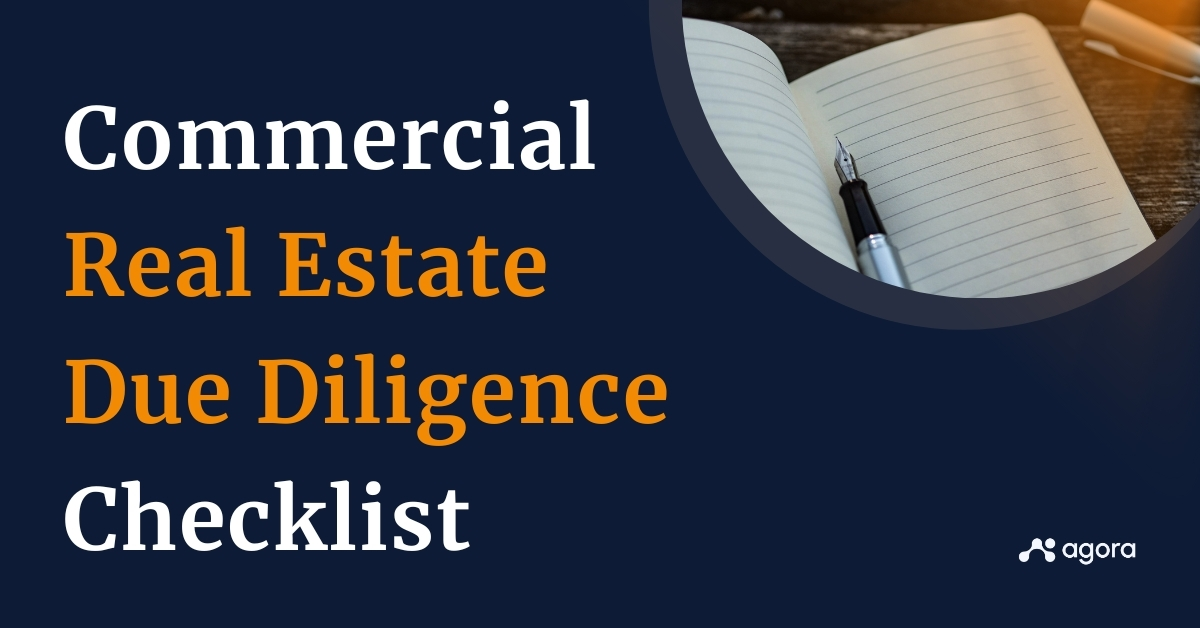In the world of commercial real estate, knowledge is power. Having a thorough understanding of what to look for and what to avoid can be the difference between a successful investment and an expensive mistake. That’s where due diligence comes in. It’s a critical process that can uncover potential issues before they become problems, ensuring you’re making the most informed decision possible. This comprehensive guide aims to arm you with a detailed checklist for conducting due diligence, empowering you to navigate your next investment with confidence and authority.
What is commercial real estate due diligence?
Commercial real estate due diligence is the rigorous process that buyers undertake before acquiring a property. It’s the metaphorical magnifying glass that scrutinizes every detail – from physical inspections to financial assessments, and from legal reviews to environmental evaluations. The goal of due diligence is to identify any potential risks, liabilities, or issues that could affect the value or usability of the property. In essence, it’s your safety net, ensuring that you’re making an informed decision based on comprehensive, accurate information.
To fully grasp the importance of commercial real estate due diligence, visualize it as a compass guiding you through the maze of property investment. Without it, you risk running into unexpected obstacles that could cost you time, money, and peace of mind. With it, however, you can confidently navigate through complex transactions, equipped with the knowledge and insights to make smart, strategic decisions. From understanding zoning laws to assessing potential repair costs, due diligence provides a holistic view of your potential investment, offering a clear path toward a successful purchase.
How long does a commercial real estate due diligence process take?
The duration of the due diligence process can vary significantly depending on various factors, including the nature of the property, its size, and the complexity of the transaction. However, on average, it typically takes between 30 to 60 days. This time frame provides an ample window to carry out all the necessary inspections, reviews, and assessments.
It’s important to note that this is merely an average range. In some cases, the due diligence period can be shorter or longer. For instance, if you’re dealing with a larger property or a more complicated transaction, the due diligence process might extend beyond the typical 60-day mark. Conversely, if the property is smaller or the transaction is straightforward, the process could be completed in less than 30 days. Essentially, the due diligence timeline is flexible and negotiable, designed to accommodate the unique needs and circumstances of each transaction.
Commercial real estate due diligence preliminary checklist
If you are embarking on your commercial real estate due diligence journey, start strong with our preliminary checklist. Remember, in the world of commercial real estate, every detail matters. This list is designed to help you navigate the initial stages of the process, ensuring that you cover all your bases and set yourself up for success:
- Thorough property inspection: This should include a comprehensive assessment of the property’s physical condition, including structural elements, systems (such as HVAC, electrical, and plumbing), and potential environmental hazards. Don’t forget to consider future maintenance and repair costs – these can significantly impact your investment’s profitability.
- Detailed financial analysis: Review all relevant financial documents such as income statements, tax returns, rent rolls, and service contracts. The aim here is to gain a clear understanding of the property’s financial performance and potential return on investment.
- Legal review: This involves checking for any legal issues that may affect the property, such as zoning laws, building codes, and potential litigation. Additionally, verify the property’s title to ensure there are no liens or encumbrances that could hinder your ownership rights. By ticking off these items on your preliminary checklist, you’re laying a solid foundation for your due diligence process, positioning yourself for a successful commercial real estate transaction.
Commercial real estate due diligence site underwriting checklist
Navigating the world of commercial real estate investment can be a complex endeavor, but armed with the right tools, you can confidently traverse this landscape. Enter the commercial real estate due diligence site underwriting checklist – a comprehensive guide designed to streamline your due diligence process, ensuring you leave no stone unturned.
From assessing financial viability to understanding legal implications, this checklist will lead you through every crucial aspect of the underwriting process:
| Component | Purpose |
| Documents | This involves a thorough examination of all relevant documents associated with the property, such as property surveys, architectural plans, and service contracts. It’s crucial to understand these documents as they provide insights into the property’s history, current status, and potential future implications. |
| Finances | A detailed financial analysis is necessary for commercial real estate transactions. Reviewing income statements, tax returns, and rent rolls helps gauge the property’s profitability, assess potential risks, and make informed decisions about the investment. |
| Insurance | Reviewing existing insurance policies, checking for any gaps in coverage, and understanding the terms and conditions is critical. Adequate insurance coverage protects your investment against unforeseen circumstances. |
| Property | A comprehensive property inspection includes an assessment of the property’s physical condition, structural integrity, and systems like HVAC, electrical, and plumbing. Future maintenance and repair costs should also be considered. |
| Legal | It’s important to conduct a legal review to check for potential litigation, understand zoning laws, and ensure compliance with building codes. Legal issues can pose significant risks to your investment. |
| Leasing | Understanding the leasing scenario is vital as it impacts the property’s income stream. Reviewing existing leases, assessing tenant quality, and understanding lease terms gives a clear picture of the property’s earning potential. |
| Title | Verifying the title ensures there are no liens or encumbrances that could affect ownership rights. A clean title is imperative for a smooth transaction and undisputed ownership. |
| Zoning | Zoning laws dictate the permissible uses of the property and can influence its value and potential for development or renovation. It’s essential to ensure the property’s current use complies with local zoning ordinances. |
Pro tips for commercial real estate due diligence
Commercial Real Estate Due Diligence is a critical process that can make or break your investment. It involves a comprehensive examination of various aspects, from legal and financial to physical conditions and market trends. How do you ensure that your due diligence is thorough and effective? Here are a couple of professional tips that can guide you through this intricate process:
Conduct due diligence in parallel with the financing process
One of the most effective strategies is to conduct your analysis in parallel with the financing process. This approach ensures that you’re not only focusing on securing the funds for the investment but also digging deep into the property’s details simultaneously. It saves time and allows for a smoother transaction process.
Reviewing financials, property conditions, market trends, and zoning regulations side by side with your financing arrangements gives you a holistic view of your potential investment. This way, you can identify any potential hurdles early on and address them promptly.
Use digital tools to streamline commercial real estate due diligence
In this digital age, utilizing technology can considerably streamline your commercial real estate due diligence process. There are numerous digital tools available that can help you organize and manage the plethora of documents involved, such as property surveys, leases, and financial statements. Not only does this make the process more efficient, but it also reduces the risk of overlooking crucial information.
Additionally, digital tools can aid in exploring financing options, reviewing pro forma information, and assessing current tenant leases and abstracts. By leveraging technology, you can conduct a more thorough and effective due diligence, positioning yourself for a successful commercial real estate transaction.
Conclusion
Conducting comprehensive due diligence is the cornerstone of acquiring commercial real estate. It’s a process that requires meticulous attention to detail, encompassing a wide range of aspects like documents, finances, insurance, property conditions, legal matters, leasing, title, and zoning. As we’ve seen, each of these elements plays a crucial role in shaping the potential success of your investment. By following the Commercial Real Estate Due Diligence Site Underwriting Checklist, you ensure that no critical aspect is overlooked.
Moreover, remember to leverage the power of technology to streamline your due diligence process and consider conducting due diligence parallel to the financing process to save time and ensure a smoother transaction. The world of commercial real estate can be complex, but with the right tools and strategies at your disposal, you can navigate this landscape confidently.










